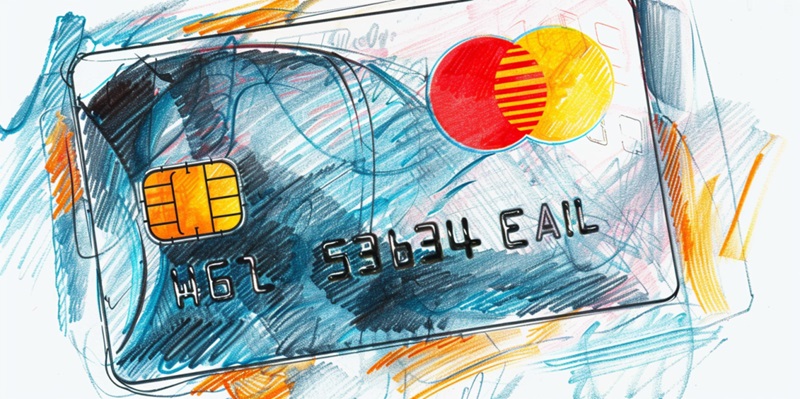In today’s digital age, cybersecurity in financial transactions has become crucial, with companies like PXP Financial at the forefront of this battle. PXP has bolstered its defenses against online fraud by adopting the Mastercard Digital Enablement Service (MDES). This move marks a significant leap towards safer payment practices for its clients. The cutting-edge tokenization technology within MDES replaces sensitive account information with unique digital tokens, greatly reducing the risk of financial data being compromised during digital transactions. As a result, PXP Financial’s merchant customers can now benefit from a new level of security that shields their operations from the rising tide of online threats, ensuring that customer trust is maintained and financial integrity is preserved in the increasingly digital marketplace. This strategic upgrade underscores the ongoing commitment of financial companies to arm themselves against the evolving dangers of cyber fraud.
The Emergence of Improved Security Measures
PXP Financial’s Strategic Partnership with Mastercard
Through its strategic partnership with Mastercard, PXP Financial leverages the robust capabilities of MDES to insulate online transactions from cyber threats. By evolving into an accredited Token Service Provider, PXP Financial now empowers its merchants with Mastercard’s advanced Secure Card on File tokenization scheme. This transformative step conveys a dual benefit—reinforcing security barriers while streamlining the transaction process.
The collaboration promises to integrate Mastercard’s renowned security agility into PXP Financial’s suite of services, thereby presenting merchants with an invulnerable shield against payment fraud. The appropriation of this technology underlines the commitment to enabling seamless, yet ironclad transactions for businesses that entrust their financial processes to PXP Financial’s infrastructure.
The Technical Brilliance of MDES and Tokenization
Mastercard Digital Enablement Service (MDES) is a pioneering solution in financial cybersecurity, transforming sensitive card numbers into unique tokens. This process effectively hides real card details from vulnerabilities on online platforms. Each token is tailored to the user’s device, enhancing security and compliance with Payment Card Industry Data Security Standards (PCI DSS).
This innovative tokenization method not only elevates security but also simplifies transactions and reduces the risk of identity theft. By creating a one-of-a-kind digital token per transaction, consumers enjoy a seamless and secure shopping experience. PXP Financial has incorporated this robust security measure, ensuring that each payment is shielded and customer data remains secure. MDES is redefining the landscape of digital payments, melding convenience with top-notch security, providing a deterrent against data misuse and boosting consumer confidence in digital commerce.
Upholding Customer Trust and Loyalty
Prioritizing the Customer Experience
Kamran Hedjri, the CEO and Founder of PXP Financial, articulates a clear vision; security is paramount for a frictionless payment experience that earns consumer trust and nurtures ongoing loyalty. This integration of Mastercard’s MDES within PXP Financial’s platform is more than a technical enhancement—it’s a strategic decision aimed at bolstering customer confidence and driving seamless interactions within the digital payment landscape.
The impact of such advanced security measures is expected to ripple through the customer base, fostering a sense of security that translates into longstanding business relationships. As PXP Financial forges that crucial nexus between technology and trust, it positions itself not merely as a payment processor but as a partner invested in its clients’ success and safety.
Enhancing Transaction Approval Rates
Mastercard tokens bring forth not only heightened security but also promise an uptick in transaction approval rates. This boon stems from the sophisticated tokenization mechanism that underwrites each transaction with a stamp of verified integrity, increasing the likelihood of a seamless approval process. In essence, these tokens are not just shields against fraud; they also serve as keys to unlock smoother financial interactions.
As users grow accustomed to the fortified yet efficient payment experiences, they are naturally inclined to transact more freely and confidently. PXP Financial thus envisions the dual advantage of fortified payment avenues and climbing approval rates as a testament to the power of Mastercard’s tokenization service, harmonizing security and operationally efficient measures.
Responding to Cybersecurity Challenges
The Growing Threat of Identity Theft
With identity theft incidents surging, striking new victims every 22 seconds, the call to arms for tighter security has never been more pressing. MDES rises to the occasion, not just as a defense strategy but as an essential component in the overarching security protocols aimed at thwarting the plague of data infringements. This systematic encryption of cardholder details at the crux of Mastercard’s service presents a formidable barricade against the illicit exploitation of personal information.
PXP Financial’s investment in such cutting-edge technology is a direct response to the alarming escalation in identity theft cases. Combining MDES’s encryption capabilities with PXP Financial’s stringent security measures illustrates a proactive and resilient stance in an era where data integrity is under constant siege.
PXP Financial’s Proactive Approach
By introducing Mastercard’s MDES into its infrastructure, PXP Financial reinforces its position as a harbinger of safety in the digital payment domain. This proactive measure crystallizes the organization’s dedication to combating the proliferation of cyber threats that stalk financial transactions. As a result, PXP Financial casts a longer shadow of influence across the digital payments industry, underlining the necessity of embedding advanced security features such as tokenization into the payment processing ecosystem.
The fintech sphere is witnessing a formidable shift, with PXP Financial exemplifying the trend towards the integration of security measures that are not only robust but also adaptive to the evolving challenges of cybersecurity. The company’s forward-thinking approach sets a standard within the industry, shining a beacon for other financial institutions to follow suit in the continual quest to safeguard digital payments.

